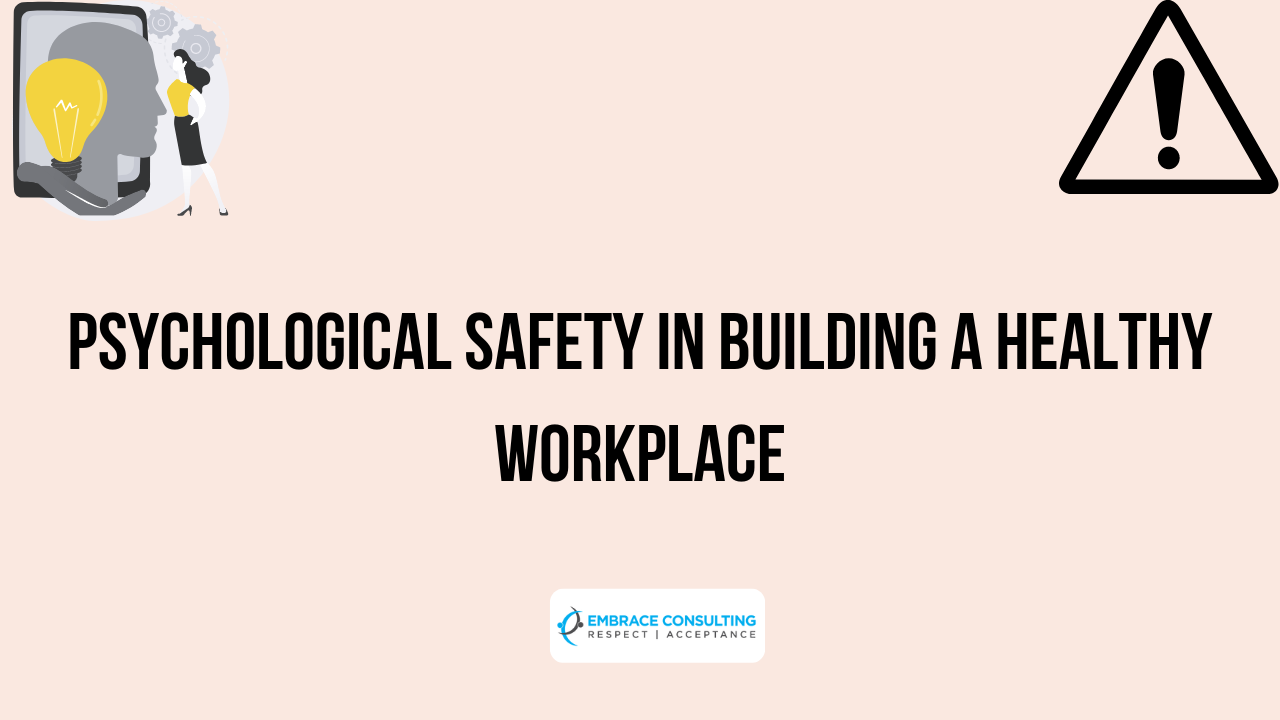Psychological safety refers to an environment in which individuals feel safe to take risks, express their thoughts and feelings, and share new ideas without fear of negative consequences. It is an essential component of a healthy organizational culture because it allows employees to feel comfortable and supported in their work environment, which can foster creativity, innovation, and productivity. It is a critical element of a healthy organizational culture, as it enables individuals to feel comfortable and supported in their work environment. It allows employees to take risks, express their thoughts and feelings, and share new ideas without fear of negative consequences.
Here are some specific ways in which psychological safety can contribute to building a healthy culture:
- Encourages open communication: In a psychologically safe environment, employees feel comfortable speaking up and sharing their ideas without fear of retribution. This can foster open and honest communication, which is essential for effective collaboration and problem-solving.
- Encourages creativity and innovation: Employees are more likely to be creative and innovative when they feel safe taking risks and sharing new ideas. This can lead to the development of new products, services, or processes that can benefit the organization.
- Increases productivity: When employees feel safe and supported in their work environment, they are more likely to be engaged and motivated. This can lead to increased productivity, as employees are more likely to put in extra effort when they feel valued and supported.
- Improves employee retention: A positive and supportive culture can lead to increased employee satisfaction, which can in turn lead to higher retention rates. When employees feel valued and supported, they are more likely to stay with an organisation for the long term.
- Promotes a positive work environment: A healthy organizational culture that promotes psychological safety can create a positive work environment that is enjoyable and fulfilling for employees. This can lead to increased job satisfaction and a sense of belonging.
To foster psychological safety in the workplace, organisations can take the following steps:
- Encourage open communication: Encourage employees to speak up and share their thoughts and ideas without fear of retribution. This can be achieved through regular meetings, one-on-one conversations, and anonymous feedback channels.
- Foster a culture of respect: Create a culture of respect and inclusivity that values diversity and encourages employees to treat each other with kindness and understanding. This can involve promoting diversity and inclusion initiatives as well as providing training on topics such as unconscious bias.
- Provide support: Offer resources and support to employees, such as training and development programmes and mental health resources, to help them feel supported in their work. This can involve providing opportunities for career advancement as well as offering resources such as counselling services or employee assistance programs.
- Encourage feedback: Encourage employees to give and receive feedback in a constructive manner, which can help improve communication and build trust. This can involve setting up regular feedback sessions as well as providing training on how to give and receive feedback effectively.
- Foster trust by being transparent, honest, and consistent in your actions and communication. This can involve being open and transparent about company decisions and plans, as well as being consistent in your communication and actions.
By promoting psychological safety in the workplace, organisations can create a positive and supportive culture that encourages employee engagement and helps to retain top talent. This can lead to increased productivity, innovation, and overall success.












